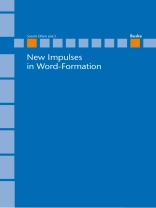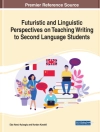This special issue entitled ‘New Impulses in Word-Formation’ demonstrates in thirteen individual, empirically oriented case studies how the methods gleaned from newer theoretical models (optimality theory, construction grammar, cognitive grammar, distributive morphology, parallel architecture) as well as from the linguistic sub-disciplines of psycholinguistics, neurolinguistics, corpus linguistics and computational linguistics can be applied lucratively to the field of word-formation. The individual contributions are from a team of international linguists and deal with a broad spectrum of interests divided almost equally between the two major areas of word-formation, derivation and composition.
Mục lục
Content:
Susan Olsen: New Impulses in Word-Formation Heike Baeskow: Derivation in Generative Grammar and Neo-Construction Grammar: A Critical Evaluation and a New Proposal Rochelle Lieber: Towards an OT Morphosemantics: The Case of -hood, -dom, and -ship Geert Booij: Constructions and Lexical Units: An Analysis of Dutch Numerals Antje Roßdeutscher: German -ung-Nominalisation. An Explanation of Formation and Interpretation in a Root-Based Account Andrew Spencer: Factorizing Lexical Relatedness Renate Raffelsiefen: Idiosyncrasy, Regularity, and Synonymy in Derivational Morphology: Evidence for Default Word Interpretation Strategies Pius ten Hacken: Synthetic and Exocentric Compounds in a Parallel Architecture Sebastian Bücking: German Nominal Compounds as Underspecified Names for Kinds Thomas L. Spalding, Christina L. Gagné, Allison Mullaly & Hongbo Ji: Relation-Based Interpretation of Noun-Noun Phrases: A New Theoretical Approach Gary Libben: Compound Words, Semantic Transparency, and Morphological Transcendence Carlo Semenza & Sara Mondini: Compound Words in Neuropsychology Ingo Plag & Gero Kunter: Constituent Family Size and Compound Stress Assignment in English R. Harald Baayen: The Directed Compound Graph of English – An Exploration of Lexical Connectivity and its Processing Consequences












